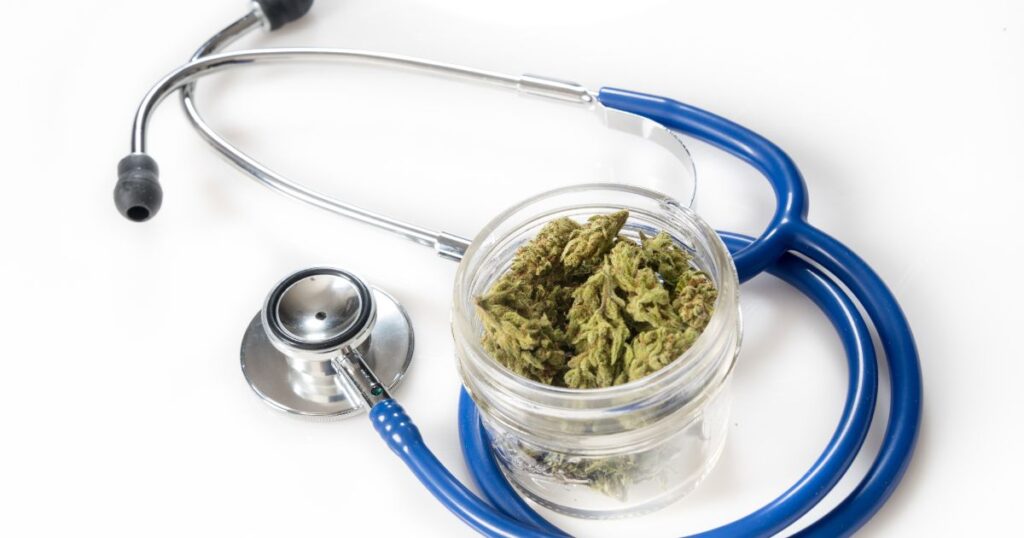The Illinois Department of Public Health (IDPH) has recently approved an expansion of the state’s medical cannabis program, adding four new qualifying conditions to the list of those eligible for treatment. This marks the first update to the list since 2019, bringing the total to 56 conditions. The newly approved conditions are endometriosis, ovarian cysts, uterine fibroids, and female orgasmic disorder, which reflects the evolving knowledge and increasing recognition of medical cannabis as a viable treatment option for specific health concerns across Illinois.
Patients suffering from these conditions can now seek certification for medical cannabis treatment, which not only offers symptom relief but also provides access to additional benefits within the state’s established medical cannabis framework.
What Does This Approval Mean for Illinois Medical Cannabis Patients?
For the first time in four years, Illinois has expanded access to medical cannabis, highlighting an ongoing effort to adapt its policies to the growing body of scientific research and medical analysis.
“Medical cannabis has been shown to offer an effective means of relief from a variety of debilitating medical conditions and symptoms,” said IDPH Director Dr. Sameer Vohra. The department’s thorough review process includes input from the Medical Cannabis Advisory Board (MCAB) and other experts to evaluate whether cannabis is a suitable treatment for each proposed condition.
A Closer Look at the Newly Approved Conditions
Endometriosis
Affecting approximately 1 in 10 women, endometriosis occurs when tissue similar to the uterine lining grows outside the uterus. This not only results in significant pelvic pain but can also lead to infertility and other complications. Medical cannabis helps alleviate pain and offers a less invasive option compared to traditional treatments like surgery or hormonal therapy.
Ovarian Cysts
Ovarian cysts encompass a range of conditions that result in pockets of fluid or tissue forming within or on the surface of ovaries. While many are asymptomatic, others can cause severe discomfort, including pelvic pain and bloating. Cannabis appears to alleviate this pain effectively, providing relief without the dependency risks associated with opioids.
Uterine Fibroids
These are benign tumors that develop in or around the uterus and can lead to chronic pelvic pain, heavy menstrual bleeding, and other complications. Cannabis offers another means of managing pain, potentially reducing the reliance on painkillers or invasive procedures like myomectomy.
Female Orgasmic Disorder
A condition where women experience difficulty achieving orgasm, female orgasmic disorder may have physical or psychological roots. Though cannabis is not a definitive cure, early research and anecdotal evidence suggest it can help relax muscles, reduce anxiety, and improve blood flow, which may enhance sexual experiences.
The new qualifying conditions went into effect immediately, allowing patients to explore cannabis as a potential therapeutic option without delay. This swift implementation ensures timely access to alternative treatments for those in need.
This new development significantly benefits eligible Illinois medical cannabis patients:
- Lower Taxes: Medical cannabis patients pay minimal taxation compared to recreational users, saving on treatment costs.
- Higher Limits: Patients can purchase up to 2.5 ounces of cannabis every two weeks compared to the 1-ounce limit for recreational users.
- Priority Access: Medical patients receive priority in situations where cannabis supplies are limited.
- Home Cultivation: Registered patients are allowed to grow up to five cannabis plants at home, helping further reduce costs.
These benefits make the medical cannabis program not only financially accessible but also a more sustainable option for long-term treatment.
Path to Approval
Illinois law permits residents to petition the state Medical Cannabis Advisory Board each January to consider adding new conditions to the approved list. Petitions undergo an evaluation process wherein IDPH reviews scientific literature and consults with experts to determine the appropriateness of cannabis as a treatment option.
Dr. Sameer Vohra emphasized that IDPH uses “the most up-to-date evidence to make decisions that best serve Illinois residents,” ensuring the program’s integrity remains at the forefront.
Illinois saw its last major expansion in 2018, when medical cannabis became an alternative treatment for opioid dependency. This was a big shift, providing a less addictive solution to combat the opioid epidemic. Such changes indicate Illinois’ progressive stance on cannabis as a medicinal option.
The Growing Importance of Medical Cannabis
The latest additions bring Illinois’ medical cannabis roster to 56 qualifying conditions, which you can find here, ranging from chronic pain and cancer to migraines and autism. Though every patient’s medical needs vary, the program’s growing list demonstrates the state’s acknowledgment that cannabis has a vital role in modern medicine.
The IDPH’s decision signals broader acceptance of cannabis as an effective medical treatment, joining a growing nationwide trend of utilizing cannabis to alleviate a wide range of health issues. For patients seeking relief from conditions that have few effective treatments, medical cannabis provides hope and an alternative path to managing symptoms.
The expansion of the medical program will not only enhance inclusivity for patients with these conditions but also contribute to the growth of the cannabis industry, which surpassed $1 billion in revenue within just six months in 2024.
What Patients Should Do Next
If you or a loved one suffer from endometriosis, ovarian cysts, uterine fibroids, or female orgasmic disorder, you can start the certification process for medical cannabis in Illinois:
Consult a Doctor – Speak with a licensed physician who is authorized to certify patients for medical cannabis treatment.
Register with IDPH – Visit Illinois Department of Public Health’s Medical Cannabis Program to submit your application.
Start Treatment – After approval, you can legally purchase medical cannabis at participating dispensaries or grow it at home.
By taking full advantage of the medical cannabis program, you can explore relief options while contributing to Illinois’ evolving approach to compassionate care.






















